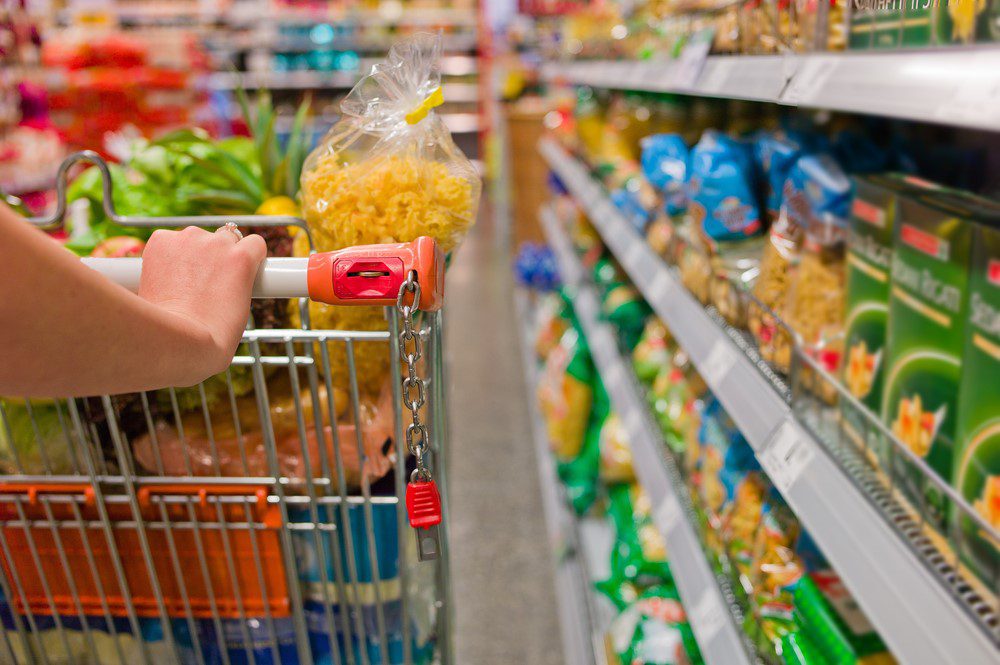A Labour Party bill seeking for food products to have carbon footprint labelling can “empower consumers by enabling informed choices”.
It would also put a “firm end” to ‘greenwashing’, Labour TD Ivana Bacik said, as she introduced the bill in the Dáil this week.
The carbon footprint labelling bill, which government amended to allow for the second reading of to be deferred a year, would confer “greater powers on the National Standards Authority of Ireland to develop standards to give information about the carbon footprint of commodities”.
Deputy Bacik said it would require the reporting of greenhouse gas emissions of the manufacture, shipping, normal use, and end-of-life disposal of the product.
“We want to make it easier for people to take steps to help reduce their impact on the environment,” the deputy said.
“This bill is not some sort of far-fetched or utopian vision. It seeks to establish, in a very practical way, a framework for providing consumers with necessary information to help them make sustainable choices.”
Avocados and Brazilian beef
Party leader Alan Kelly said that there is a need for Ireland to have a national standard that “people can trust”.
“When doing your weekly grocery shopping, it can be all but impossible to know the environmental impact of what you buy. The famous avocado has a major carbon impact, but so too does Brazilian beef,” deputy Kelly said.
“If we want to seriously transition to a low-carbon economy, it will mean using local products as much as possible.
“That means the person buying a product needs to know the impact of this asparagus, hazelnut milk or soya product.
“This bill is a way to support local producers in Ireland and responsible producers.
He added that the bill, which was would provide a “competitive advantage” for Irish food produces.
“A robust carbon labelling system will provide a further incentive for farmers who produce more environmentally friendly food.
“We know that adding value to the products made here is the best way to support farming incomes.
“Providing an incentive to supply less carbon-intensive dairy, beef or any other food is the way forward. Carbon labelling is part of that solution.”
‘Red tape’
Meanwhile, rural independent TD Michael Collins, who opposed the bill, said there are a “range of issues attached to carbon labelling, which raise a highly complex set of interlocking problems”.
“This policy has the potential to put hundreds of small food and artisan producers in Ireland out of business due to red tape compliance and transaction costs,” he said.
“On a practical level, most farmers, food processors, hauliers and shop owners have never considered the carbon content of their work.
“A farmer may know how much fertiliser is being used, but have only rudimentary energy accounts, often in money rather than energy units, or detailed measurements.
“It is likely that large-scale and multinational manufacturers will be better informed but, even so, a requirement to provide carbon statistics would create a major revolution.”
Kerry TD Danny Healy-Rae described the bill as a “good piece of blackguarding to try to get people to pay more for their produce and to try to get producers to get involved in intricate actions to try to account for their carbon footprint”.
Carbon footprint labelling bill is ‘incredibly weak’
Deputy Thomas Pringle said that the bill is “incredibly weak”. He said it doesn’t “even begin to address the systemic problems” that need to be addressed in Ireland.
“The bill is nothing more than tokenism in that regard,” the Donegal TD said.
“The idea that we all need to take personal responsibility to effectively address the climate crisis is ridiculous and demonstrably false, especially when we have data centres using up an incredible amount of energy.
“If we are to address the climate crisis in a real and impactful way, we need good environmental and just transition policies that target the largest producers of emissions and not the working classes.
“Families on lower incomes are more likely to buy products with a higher carbon footprint because they are cheaper.
“We cannot begin to penalise those who can only afford to compare price instead of carbon footprint.
“This bill is just one of the many climate bills that disproportionately affect lower-income families instead of targeting the real problem of high emissions from farming and industry and the macro-structures of unsustainability such as capitalism and colonialism.”
